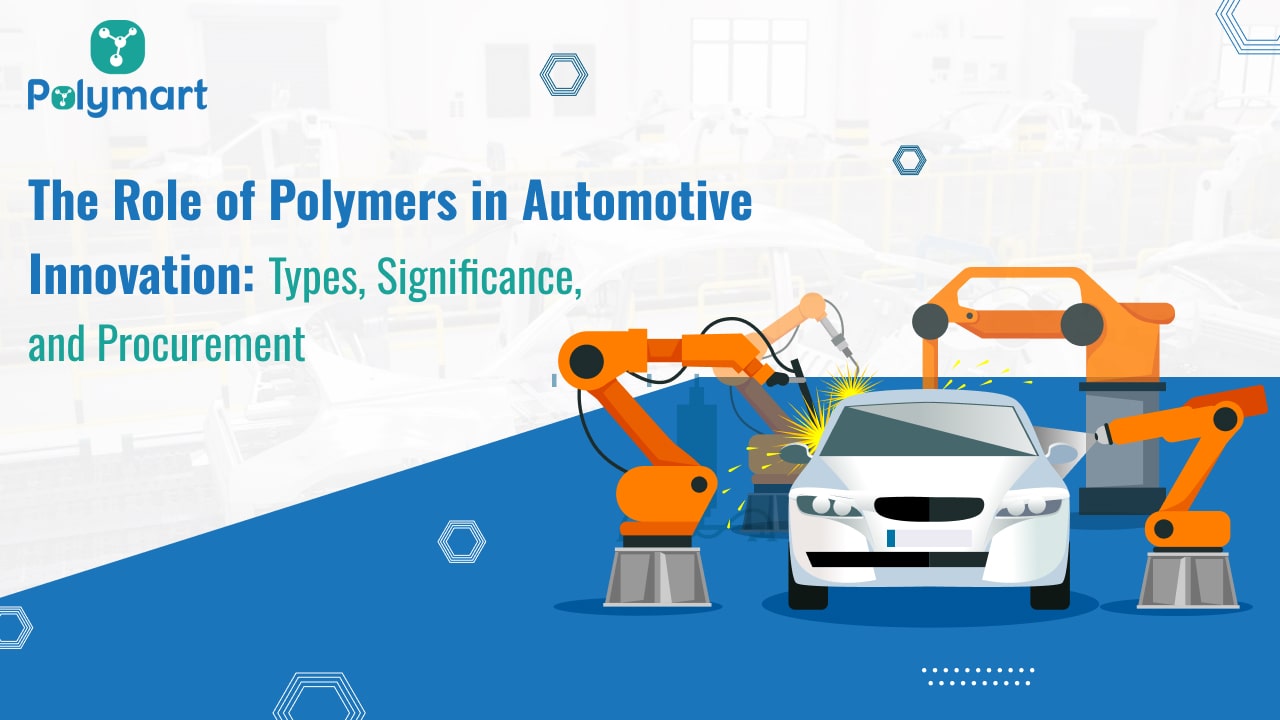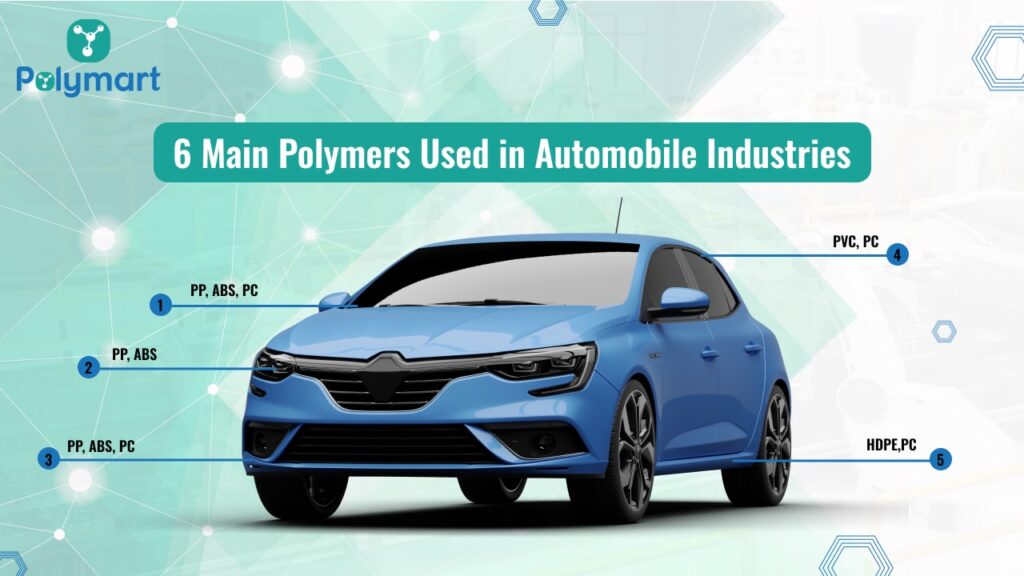
In the past, metal reigned supreme in the automotive industry, dominating bodywork, engines, and interior components. However, today, plastics constitute approximately one-third of the roughly 30,000 parts in cars.
According to recent studies, a 2024 report on the global automotive plastics market predicts a market size of $43.44 billion by 2030, with a compound annual growth rate (CAGR) of 5.4% from 2024 to 2030. This growth is attributed to the increasing preference for high-performance plastics over traditional metals and rubber.
In light of this trend, this article aims to delve into the importance of polymers in the automobile industry and provide insights into procuring polymers online to meet specific business needs.
The Significance of Polymers in the Automotive Industry
Polymers, which are large molecules composed of repeated structural units called monomers, offer versatility in size, complexity, and properties. This versatility renders them indispensable in various applications.
In the dynamic automotive sector, polymers have revolutionized vehicle design and performance. Their lightweight and durable properties play a crucial role in enhancing fuel efficiency, safety, and overall performance.
Moreover, the cost-effectiveness and recyclability of polymers promote affordability and sustainability in the automotive industry. By embracing cutting-edge technologies, polymers continue to drive innovation, shaping the future of automobile design and functionality.
Procuring Polymers Online: A Practical Approach
For those seeking to buy or sell polymers online, platforms like the PolyMart App provide a convenient solution. PolyMart stands out as a renowned polymer distribution company in India, catering to the diverse needs of buyers and sellers across the country.
Main Polymers Used in the Automotive Industry

With approximately 30,000 parts in a vehicle, of which one-third are plastic, automobiles rely on a variety of polymers. Here are some commonly used polymers in the automotive industry:
1. Polypropylene (PP): Widely employed in automotive interiors for its lightweight and durable properties.
2. Polycarbonate (PC): Preferred for automotive safety applications due to its exceptional impact resistance and optical clarity.
3. High-Density Polyethylene (HDPE): Ideal for automotive exterior parts requiring high strength and impact resistance.
4. Polyvinyl Chloride (PVC): Durable material used for wire insulation and interior trim components.
5. Polyethylene Terephthalate (PET): Valued for fluid storage components in cars due to its mechanical properties and chemical resistance.
6. Acrylonitrile Butadiene Styrene (ABS): Highly preferred for various automotive components due to its toughness and ease of processing.
Conclusion
As the automotive industry increasingly transitions from metal to polymers, the plastic sector plays a pivotal role. Platforms like PolyMart facilitate seamless procurement of polymers, offering a wide range of options to meet diverse needs. With its app, PolyMart ensures a safe and reliable buying/selling experience, keeping stakeholders informed about the latest polymer prices and connecting them with genuine buyers and sellers. Embrace hassle-free polymer procurement with PolyMart – driving innovation in the automotive industry.